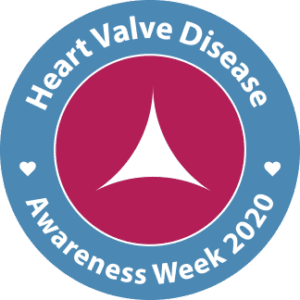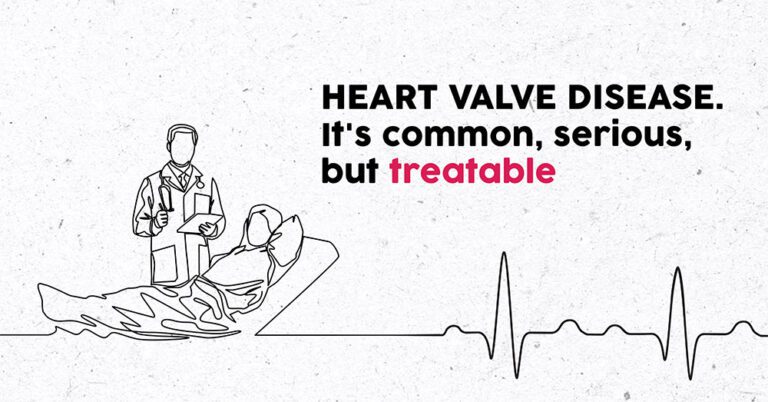[vc_row][vc_column][vc_column_text]

The European Heart Health Survey, an international survey of people over 60 years across 11 European countries, has found very low awareness in Ireland of heart valve disease and of certain symptoms requiring medical attention. Heart valve disease is largely a condition of ageing and, when it comes to a simple stethoscope check that can diagnose it, one in five respondents say that they either never have a stethoscope check or only have one when they ask their GP for it.
Croí, the heart and stroke charity, is calling for Government to offer everyone over 55 years a free annual cardiac check to ensure early diagnosis of a range of cardiovascular diseases. The call comes as International Heart Valve Disease Awareness Week gets underway from September 14-20. The week is an initiative of the Global Heart Hub, an international alliance of heart patient organisations from around the world, and is led in Ireland by Croí.
Rising Numbers
Heart valve disease is where one or more of the valves in the heart is diseased or damaged, giving rise to a narrowing of the valve (stenosis) or causing leakage (regurgitation), meaning the heart can’t pump blood effectively.
For too many people, symptoms are either not recognised or ignored and this can have fatal consequences. People perhaps recognise more overt symptoms such as chest pain and irregular heartbeat, but more understated symptoms such as breathlessness and tiredness, can be important red flags as well.
Estimates suggest that 13% of people over 75 years will experience heart valve disease. There are over 2.7 million people across Europe age 65 and over thought to have heart valve disease with this figure set to rise to 20 million Europeans within the next two decades due to changing age demographics.
If severe aortic stenosis is left untreated – the most common form of heart valve disease – 50% of patients will die within two years of developing symptoms. While common and serious, heart valve disease is very treatable.
Survey Highlights
The European Heart Health Survey by Censuswide questioned 1,000 people over 60 years in Ireland and found:
- Awareness: only 5% of respondents could accurately define aortic stenosis, the most prevalent type of heart valve disease – 95% could not. This compares with 12% in the Netherlands who could accurately define the condition
- Diagnosis: only a third (32%) claim to receive a stethoscope check that can detect a heart murmur at every GP visit – compared with 76% in France and 57% in Belgium. One in ten (9%) say they never receive a stethoscope check from their GP and a similar number (10%) only when they ask for one
- Symptoms: while the majority of respondents would seek an appointment with a general practitioner for symptoms such as chest tightness/pain (87%), shortness of breath (68%), abnormal heartbeats (67%) or feeling faint (51%), only a minority would seek medical help if they had some of the other key symptoms of aortic stenosis, such as fatigue (30%), reduced physical activity (21%) and feeling older than your age (18%)
- Treatment: those surveyed would prefer a keyhole procedure (69%) over open-heart surgery (5%), or daily/weekly drug therapy for the treatment of a heart condition (24%)
- Economy: respondents are key contributors to the economy, playing an important role as carers with almost a third (28%) providing care for someone close to them
- Community: more than four fifths (87%) regularly participate in activities, including sports (56%), volunteering for a charity or community (31%), and social activities with their peers (26%)
Benefits are Clear
For Neil Johnson, CEO, Croí, the provision of a free annual cardiac check for the over 55s would have clear health and economic benefits:
“Heart valve disease is predominantly an age-related condition. As we get older, the greater the chances of developing it. Early detection and timely treatment not only reduce the impact of the disease but increase longevity with enhanced quality of life.
“Globally we are living longer and it’s in everyone’s interest that we maintain good health and quality of life for as long as possible. A stethoscope check is an inexpensive means of undertaking early diagnosis for heart valve disease and everyone over 65 years should have one at least once a year.
“This combined with checks for other cardiovascular diseases such as a pulse check for atrial fibrillation, blood tests for heart failure and cholesterol, and blood pressure checks for heart attack and stroke, should form part of a comprehensive annual cardiac check.
“This International Heart Valve Disease Awareness Week, we are calling on Government to provide a national free annual cardiac check for everyone over the age of 55. These are simple, inexpensive and non-invasive tests, and the many benefits of implementing such an initiative are clearly evident.”
For Prof. Dr. Helge Möllmann, Klinik für Innere Medizin I, St.-Johannes-Hospital, Dortmund, and lead author of the survey, it is important that older people know about the disease and the symptoms to look out for:
“The senior population are a group at risk, more so as they grow older, so it is important that they are more aware of the disease and understand the severity of often hidden symptoms to help ensure early diagnosis and timely treatment. It is estimated by the age of 75, the prevalence of heart valve disease is 13%. More work needs to be done to shift the awareness level and that is why this week, Heart Valve Disease Awareness Week, is a key step for improved patient outcomes.”
Full information on the week can be found at www.croi.ie/valveweek.[/vc_column_text][/vc_column][/vc_row]
